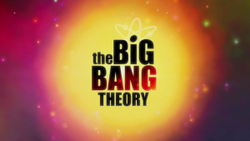I hadn’t planned on watching much of this year’s Sochi Olympics but I am. As a manly man I’m supposed to switch channels when ice dancing comes on or at least claim I never watch it but I don’t deny I enjoy it. There’s interesting music and the crowd really gets into it, especially when the skaters execute a lively, heartfelt performance. Being a typical Minnesota male who’s interested in team sports, I follow the men’s hockey team especially close. And although I’d never do it, I get a huge, vicarious thrill out of watching the snowboarders and ski jumpers fly down the hill and through the air. Lastly, to me, curling is like croquet on ice except that in croquet the route to the destination more ziggy-zaggy. In both sports, you can use your stone/ball (I know, it reeks of male genitalia) to knock your opponent out of position. Also, for me, curling is like a cold-weather version of cricket: they’re both bizarre sports with scoring systems I don’t understand played by people who don’t fit the typical body type one associates with “athlete” (although cricket players are kind of like baseball players).
From a philosophical viewpoint, I find the Olympics, and sports in general, to be fascinating proofs of the truth that we’re all one spiritual, intimately-connected body of Life (One Life, as Eckhart Tolle calls it) as opposed to the egocentric, “everyone’s an island”, entity-based view.
From four- and five-year-old kids playing T-ball to winners of the World Series; from grade-school kids shooting hoops in the gym or schoolyard; and from pickup games at family get-togethers to the THE FOOTBALL game with Roman numerals at the end of it, what makes it all so interesting and exciting is something physicists like Heisenberg would appreciate: it’s the uncertainty of it all.
The Heisenberg uncertainty principle, in brief, states that nothing in the universe has a definite position, trajectory or momentum. If one more precisely knows the position of an object, that makes it less likely one can know its momentum with any significant of certainty. The reverse, if one knows an object’s momentum with a great deal of certainty, that makes is less likely one can know the object’s position. For a detailed explanation, including diagrams, go to http://simple.wikipedia.org/wiki/Uncertainty_principle.
My version of this fundamental truth is called Lee’s Life is One Huge Cliff Hanger Principle. This states that predicting the outcome of any event, which includes human behaviors, with any significant degree of certainty is impossible. We don’t know who’s going to win the game until it’s over. We don’t how someone will act in a given situation until after the fact. Before it happens, it’s all conjecture and guesswork, which although can be really fun to do, shouldn’t be confused with thinking we really know what we’re talking about.
Just look at meteorologists, economists and sports analysts. They all try to predict the future and I don’t need to state the obvious about how successful they are. Betting on sports and playing poker for money are so popular because of the uncertainty. The participants have different ideas about what’s going to happen and they’re willing to wager cash money on their beliefs about future events. Back to betting on spectator sports, despite all the websites that offer to sell you their secret, winning system, no one really knows who’s going to win and by how many points. A large part of the joy of sports is when an underdog, especially a huge underdog, beats the favorite. Case in point: the 1980 USA Men’s hockey team defeat of the Soviet Union (now Russia).
Now every country uses professional and college players on their Olympic hockey team but that wasn’t the case back in the 70’s. The Russians were ahead of the curve in using professionals to play on the hockey team they sent to the Olympics but the United States, at that time, employed only college players. None of the “experts” and a miniscule percentage of hockey people in general gave the American team much of a chance. But we all know what happened. Masterminded and led by coach Herb Brooks, a determined, gutty, unified team of Americans pulled off the “Miracle on Ice”. The logical, egocentric crowd had put the Russian team into the box labeled SURE FAVORITE and the USA team into HOPELESS UNDERDOG.
Which brings me to a famous, fictional physicist, Dr. Sheldon Cooper. Being the supposedly brilliant master of physics, one would think he’d understand the uncertainty principle better as it relates to phenomena beyond the narrow field of physics. But he doesn’t because Sheldon is squarely rooted in the “every man/woman is an island”, entity-based view of the universe, which supersedes his vast scientific knowledge and understanding. As I note in my “The Big Bang Theory”-themed blog (http://wp.me/p2pija-xj), part of the humor in the show is Sheldon discovering how untrue his view of the universe is, most notably his over-reliance on labels, especially stereotypes, to define the world.
In sports, going into every contest, there are always two major labels, favorite and underdog. The larger the upset, the more it shows the shallowness and inadequacy of labels that purport to capture the truth. Did I hear someone say The Roommate Agreement?
To learn how to overcome any obsessive, dysfunctional behavior, including alcohol or drug addiction, go to http://www.lulu.com/spotlight/leewriter to learn more about my first self-help book, “Overcome Any Personal Obstacle, Including Alcoholism, By Understanding Your Ego”.



